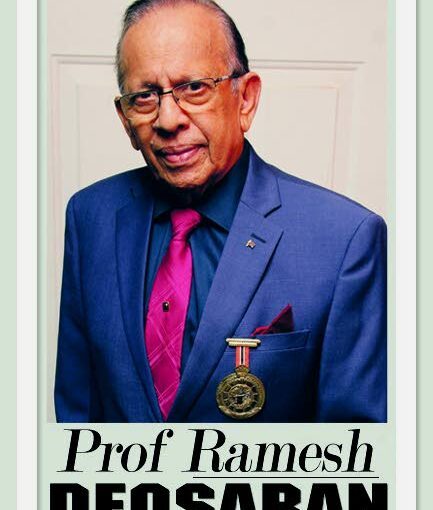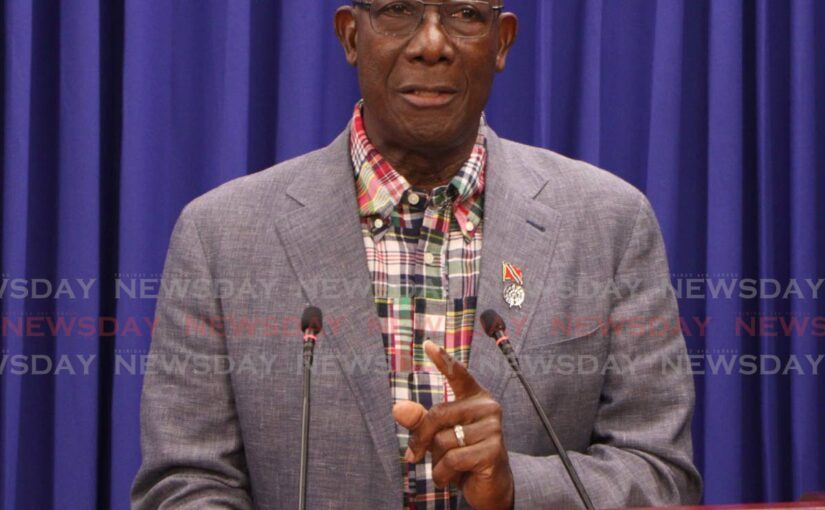A Metaphor for Global Politics and Journalism Doxa, the realm of common opinion and culturally contingent beliefs, serves as the starting point...
Vous n'êtes pas connecté
- English
- Français
- عربي
- Español
- Deutsch
- Português
- русский язык
- Català
- Italiano
- Nederlands, Vlaams
- Norsk
- فارسی
- বাংলা
- اردو
- Azərbaycan dili
- Bahasa Indonesia
- Հայերեն
- Ελληνικά
- Bosanski jezik
- українська мова
- Íslenska
- Türkmen, Түркмен
- Türkçe
- Shqip
- Eesti keel
- magyar
- Қазақ тілі
- Kalaallisut ; kalaallit oqaasii
- Lietuvių kalba
- Latviešu valoda
- македонски јазик
- Монгол
- Bahasa Melayu ; بهاس ملايو
- ဗမာစာ
- Slovenščina
- тоҷикӣ ; toğikī ; تاجیکی
- ไทย
- O'zbek ; Ўзбек ; أۇزبېك
- Tiếng Việt
- ភាសាខ្មែរ
- རྫོང་ཁ
- Soomaaliga ; af Soomaali
Rubriques :
 Maroc - EURASIAREVIEW.COM - A la une - 30/12/2024 00:11
Maroc - EURASIAREVIEW.COM - A la une - 30/12/2024 00:11
The Politics Of Unreason – OpEd
The "politics of unreason" refers to a phenomenon where rational discourse and evidence-based decision-making are replaced by emotional appeals, ideological dogmatism, and conspiracy-driven narratives. This dynamic, fueled by social and political polarization, undermines public trust in democratic institutions and replaces critical thinking with blind allegiance to charisma or ethnic affiliations. Historically exemplified by authoritarian regimes, such as those led by Adolf Hitler and Joseph Stalin, and more recently evident in populist movements worldwide, the politics of unreason thrives in environments marked by societal discontent, institutional mistrust, and the weaponization of misinformation. In Pakistan, the politics of unreason has increasingly come to define the rhetoric and strategies employed by political leaders like Imran Khan, reflecting broader global trends while exposing unique local vulnerabilities. At its core, the politics of unreason exploits human psychology. It taps into fears, anxieties, and desires for certainty in uncertain times. This strategy is evident in how authoritarian regimes have historically manipulated public perception. Hitler’s propaganda machine, for instance, used emotionally charged rhetoric to present Jews and other marginalized groups as scapegoats for Germany’s post-World War I woes. Similarly, Stalin’s purges and the accompanying rhetoric framed dissenters as "enemies of the people," erasing any space for rational debate or opposition. These historical examples highlight the central tenet of unreason: its ability to replace logical argumentation with emotional manipulation, turning complex socio-political issues into simplified, binary narratives. In modern democracies, the politics of unreason often manifests in populist rhetoric that pits "the people" against an "establishment" or "elite." European populist leaders like Viktor Orbán in Hungary and Marine Le Pen in France have utilized these tactics effectively. Orbán’s framing of liberal democratic values as existential threats to Hungarian identity exemplifies how the politics of unreason thrives on creating false dichotomies. Le Pen’s rhetoric, which often scapegoats immigrants as the root cause of France’s socio-economic challenges, similarly eschews nuance in favor of emotional appeal. These leaders exploit societal divisions, presenting themselves as defenders of national identity and sovereignty against external or internal "threats." In Pakistan, the politics of unreason has found fertile ground, particularly in the rhetoric of Imran Khan. Since his removal from office in April 2022, Khan has employed narratives that resonate deeply with a disillusioned populace. His claims of a foreign conspiracy orchestrating his ouster, asserted without definitive evidence, reflect the same unreasoned tactics used by leaders like Orbán and Le Pen. By framing his political struggle as a battle against corrupt elites and foreign interference, Khan has successfully cultivated a loyal base that views his narratives as unquestionable truths, regardless of empirical validation. The effectiveness of unreason in Pakistan is amplified by structural factors, including widespread distrust of traditional political institutions and the pervasive influence of social media. Platforms like Twitter and Facebook serve as echo chambers, where emotionally charged and polarizing content spreads rapidly. This digital environment facilitates the politics of unreason by amplifying unverified claims and suppressing dissenting voices. In Khan’s case, his adept use of social media has allowed him to bypass traditional media gatekeepers, directly reaching his supporters with simplified, emotionally resonant messages. This mirrors the propaganda techniques of historical regimes but adapted to the digital age. The politics of unreason also undermines democratic norms by eroding public trust in institutions. In Pakistan, this is evident in Khan’s repeated assertions that the establishment is manipulating the political system to prevent his return to power. Such rhetoric preconditions his supporters to reject any electoral outcome unfavorable to his party, Pakistan Tehreek-e-Insaf (PTI). This strategy echoes historical instances, such as Hitler’s use of the Reichstag fire to delegitimize political opponents and Stalin’s framing of purges as necessary for the survival of the Soviet Union. By delegitimizing institutions and processes, the politics of unreason not only deepens polarization but also creates a self-reinforcing cycle of mistrust and instability. The emotional appeal of unreason is further bolstered by its ability to simplify complex issues. For instance, Khan’s narrative of an all-powerful establishment colluding with foreign powers to undermine Pakistan’s sovereignty reduces intricate geopolitical and domestic challenges into a single, digestible storyline. This simplification is crucial to the politics of unreason, as it transforms multifaceted problems into battles of good versus evil, leaving little room for nuanced discourse or critical analysis. The result is a polarized political landscape where dialogue is replaced by cult following, and allegiance to leaders becomes more important than engagement with facts or policies. The global implications of the politics of unreason cannot be ignored. As countries like Hungary, France, and Pakistan grapple with its consequences, the erosion of democratic values becomes a shared concern. In Pakistan, the stakes are particularly high given the country’s fragile political system and history of military interventions. The normalization of unreason in political discourse risks further destabilizing democratic processes, with long-term consequences for governance and public trust. To counter the politics of unreason, a multifaceted approach is required. First, strengthening democratic institutions and ensuring their independence is crucial to restoring public confidence. Second, fostering media literacy and critical thinking skills can help citizens discern fact from propaganda, reducing the effectiveness of unreasoned narratives. Finally, political leaders and civil society must prioritize evidence-based discourse, rejecting the temptation to exploit societal divisions for short-term gains. To sum it up, the politics of unreason represents a profound challenge to democratic governance and social cohesion. By prioritizing emotional appeal and ideological loyalty over rational discourse, it undermines the very foundations of democracy. In Pakistan, as in many parts of the world, addressing this challenge requires a commitment to rebuilding trust in institutions and promoting a culture of reasoned debate. Without these efforts, the politics of unreason will continue to erode public trust, deepen polarization, and threaten the democratic fabric of societies.
Articles similaires
Narcissistic Leadership In The 21st Century – OpEd
Leadership is the art of blending vision, discipline, courage, integrity, and intelligence with the science of selflessness. A leader is a person...
Bangladesh’s Tentative Election Timeline And Reform Challenges – Analysis
By Imran Ahmed In his recent national address, Bangladesh’s interim government leader, Muhammad Yunus, laid out a tentative timeline for the...
The Progressive Authoritarian Tide Retreats – OpEd
Two months ago in the UK, a 17-year old girl with autism took the field in her all-women team for a match in a single-sex soccer league. She noticed...
Crime and ‘crabs in a barrel’
During the Christmas season, a group of friends with mixed political loyalties, like so many citizens now, were expressing serious concerns about...
Syria’s Ten Post-Assad Challenges – OpEd
By Anwar Abas It took barely ten days for the regime of Syrian President Bashar al-Assad to fall. But his dramatic ousting was not simply down to...
No place in Trinidad and Tobago for political thuggery
THE EDITOR: The National Transformation Alliance (NTA) is calling for calm and a lowering of tensions in the aftermath of a video on social media...
Against The Tide: Narendra Modi’s 2024 Ordeal – Analysis
As 2024 approaches its conclusion, the year leaves behind an indelible mark, particularly in the realm of global politics. Dubbed the “Year of...
Selecting candidates for public office
THE EDITOR: The selection of candidates for general elections is a critical process for any political party, as the individuals chosen can impact the...
America's dark past and the key to stopping Trump's authoritarian rule
It’s probably, politically and spiritually, the darkest holiday season for our nation in my lifetime. So how about a quick story out of America’s...
Les derniers communiqués
-
Adobe Brings Conversational AI to Trillions of PDFs with the New AI Assistant in Reader and Acrobat
Adobe - 21/02/2024
-
Laura Frigenti takes the Helm as Chief Executive Officer of the Global Partnership for Education
Global Partnership for Education - 05/12/2022



